Crescent Sustainability Initiatives
Partnerships for the Goals (SDG 17)
COMMITMENT TO INTERNATIONAL COLLABORATION IN SUSTAINABLE DEVELOPMENT
The B.S. Abdur Rahman Crescent Institute of Science and Technology has demonstrated a strong commitment to sustainable development by actively engaging in international collaborations to gather and measure data for the Sustainable Development Goals (SDGs). The institute’s initiatives, particularly in the construction of green buildings, align with global sustainability efforts and provide valuable insights into energy efficiency, water conservation, and reduced embodied energy in materials. By participating in international frameworks such as the EDGE (Excellence in Design for Greater Efficiencies) program, the university enhances its sustainability practices and contributes to a broader understanding of effective strategies for achieving the SDGs.
SHOWCASING ACHIEVEMENTS THROUGH EDGE CERTIFICATION
The institute’s green building projects, including the new Ladies Hostel and Staff Quarters, have been certified under the EDGE program, showcasing significant energy and water savings achievements. For instance, the BSA Ladies Hostel has reported energy savings of 27% and water savings of 27%, while the Staff Quarters have achieved even higher savings. These metrics reflect the university’s dedication to sustainability and serve as critical data points that can inform international discussions and collaborations on best practices for sustainable building design and resource management.
INNOVATIVE PRACTICES IN ECO-FRIENDLY CONSTRUCTION
In addition to building certifications, the university’s use of innovative materials and technologies, such as Grass Crete for stormwater management and low-VOC paints, exemplifies its commitment to eco-friendly construction practices. By documenting and sharing these practices, the institute contributes to a global repository of knowledge that can aid other institutions in their sustainability efforts. This collaborative approach fosters a network of learning and innovation, allowing for the exchange of ideas and strategies that can be adapted to various contexts worldwide.
LEADING THE CHARGE IN SUSTAINABLE DEVELOPMENT EDUCATION
Overall, the B.S. Abdur Rahman Crescent Institute’s engagement in international collaboration for data gathering related to the SDGs underscores its role as a leader in sustainable development education. By participating in global initiatives and sharing its successes, the university not only enhances its own sustainability outcomes but also contributes to the collective effort of institutions worldwide to achieve the SDGs. This commitment to collaboration and data sharing is essential for driving meaningful progress towards a more sustainable future.
GREEN BUILDINGS & CERTIFICATION
- All existing buildings are registered with Indian Green Building Council (IGBC) for green building certification under IGBC – EB rating
- New buildings are constructed over the last six years and those under construction are registered with GBCI EDGE and USGBC LEED for green building certification for Gold rating.
- GBCI-EDGE Green building certification received for New Ladies Hostel & New staff quarters on 23.04.2018.
- Crescent School of Architecture block is conceived as a Net Zero Energy building and registered under USGBC-LEED for Gold rating certification.
GREEN BUILDING IN CONSTRUCTION
Sustainable and eco-friendly campus development has been adopted with following materials
- Grass Crete: Method of laying Grass paver flooring, walkways, sidewalks and driveways to improve storm water absorption and drainage
- Ash Crete: Fly ash (recycled) content with cement is being used for all Reinforced Cement concrete works.
- Low – VOC paints: Painting with low VOC less than 50gm/liter is using for all painting works – Nippon and Berger
- Engineered wood: MDF (Medium Densified Fibre) wood used for interior partition, doors and furniture’s.
- Structural Insulated Panels (SIP): Foam board wall panels are used for prefab structures such as class room and indoor game space.
- Insulated Concrete Forms: GFRC Technology being adopted to construct parent waiting guest rooms and essential staff quarters.
- Steel: Steel roof panels (recyclable) used for workshop roofing.
- Composites: Roof panels made of composite materials such as foam sandwiched between two metal sheets used for prefab class room ceiling.
- Fibreglass: Fibreglass is also used in insulation in the form of Fibreglass batts for interior partition works.
- AAC Blocks: Autoclaved Aerated Concrete blocks (non- toxic product) are used for the construction of all buildings to reduce low environmental impact.
- Thermatek Roof tile: Heat Resistant Terrace tiles are used for all buildings.
- VAV system: Variable air volume HVAC system is adopted to reduce energy consumption.

Figure XVII (2.3) – 1: Photographs showing the BSA Staff Quarters
The B.S. Abdur Rahman Crescent Institute of Science and Technology, located in Chennai, has prepared students in India to pursue careers in engineering, science and technology for over 40 years. In addition to inspiring innovation among its students, the university has also chosen to improve its campus by adding green buildings. The new women’s residences and staff quarters have many green features that have all been implemented at no additional cost to the university. When utility bills are taken into consideration, the result is a positive sum gain.
The university has many green features such as solar hot water collectors and energy-saving lighting systems to reduce energy consumption, and UPVC windows to reduce embodied energy in materials. Located in a region that experiences frequent droughts and shortages of water, the university can also conserve its supply of water with the help of low-flow showerheads and faucets and dual flush water closets. The university hopes to use EDGE for future buildings on the campus, to further its resource-efficient and environmentally-friendly approach.
SUMMARY OF EDGE CERTIFICATION REPORTS
The following reports summarize the achievements of various buildings at BS Abdur Rahman University in terms of energy efficiency, water conservation, and reduced embodied energy in materials. Each building has been certified under the EDGE (Excellence in Design for Greater Efficiencies) program, which is an initiative by the International Finance Corporation (IFC).
BSA Ladies Hostel: Triple Occupants Room (28 Units)
Energy Savings: 27%
Water Savings: 27%
Less Embodied Energy in Materials: 61%
BSA Staff Quarters: 28HK Type (18 Units)
Energy Savings: 36%
Water Savings: 21%
Less Embodied Energy in Materials: 56%
BSA Staff Quarters: 38HK Type (27 Units)
Energy Savings: 37%
Water Savings: 20%
Less Embodied Energy in Materials: 55%
BSA Ladies Hostel: Single Occupant Room (91 Units)
Energy Savings: 26%
Water Savings: 28%
Less Embodied Energy in Materials: 63%
BSA Staff Quarters: 28HK Type (18 Units)
Energy Savings: 36%
Water Savings: 21%
Less Embodied Energy in Materials: 56%
Overall Impact
The certifications demonstrate a commitment to sustainability and resource efficiency across the university’s facilities. The significant energy and water savings, along with reduced embodied energy, contribute to lower operational costs and a smaller environmental footprint.These achievements reflect the university’s dedication to creating a sustainable living and learning environment for its students and staff.
The B.S. Abdur Rahman Crescent Institute has received final EDGE certification from GBCI India.
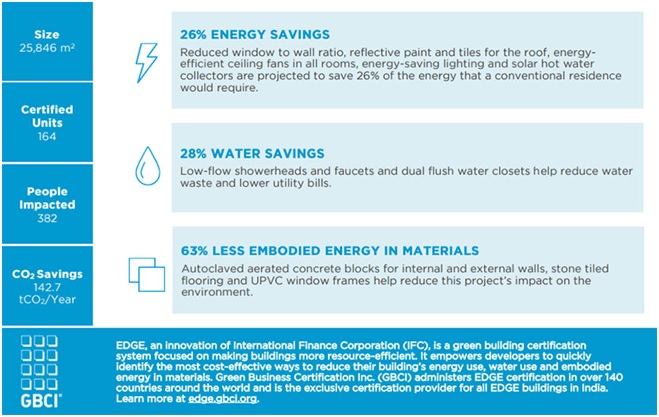
Figure XVII (2.3) – 2: Screenshot showing the gist of Statistics of Audit conducted by EDGE
BSA Staff Quarters & Ladies Hostel – Hostel Block – GBCI EDGE Project Study
BSA Staff Quarters and Ladies Hostel – EDGE Details
EDGE GREEN BUILDING CERTIFICATION

Figure XVII (2.3) – 3: GBCI-EDGE GREEN BUILDING Certification for Ladies Hostel
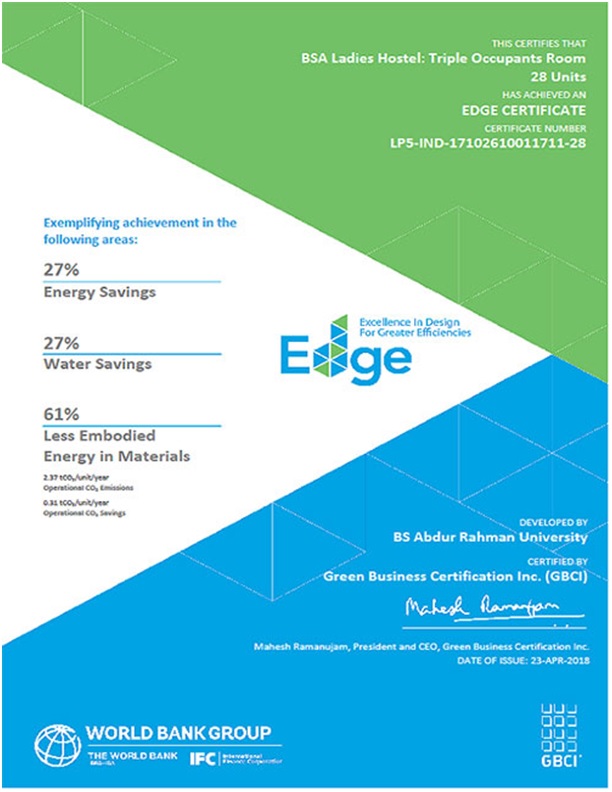
Figure XVII (2.3) – 4: GBCI-EDGE GREEN BUILDING Certification for Ladies Hostel
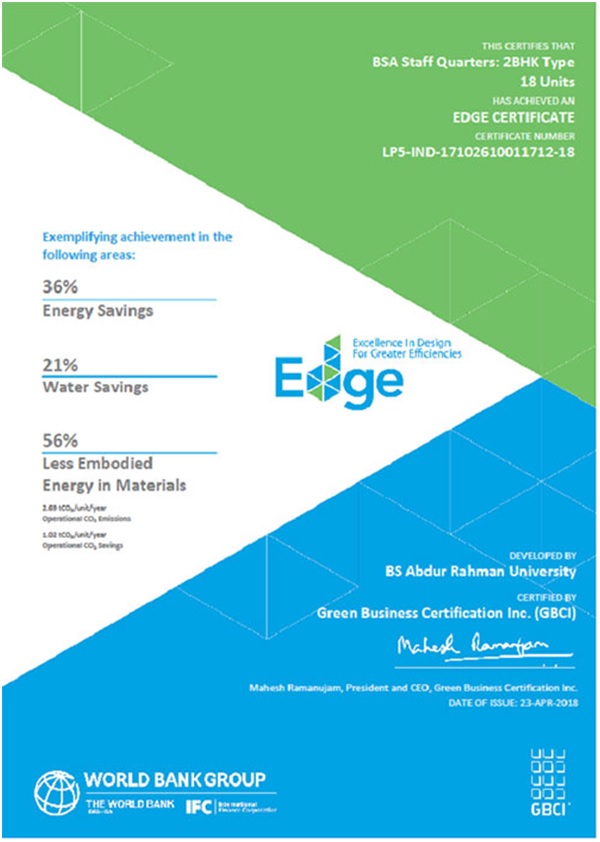
Figure XVII (2.3) – 5: GBCI- EDGE Certificate for Staff Quarters
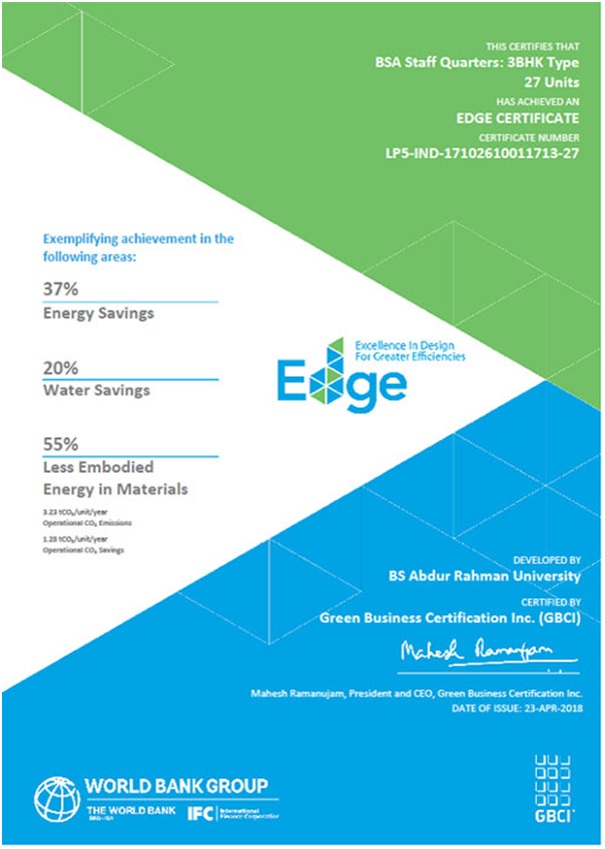
Figure XVII (2.3) – 6: GBCI- EDGE Certificate for Staff Quarters
ANNUAL SDG ACCORD REPORT 2024 PUBLISHED
EAUC has published the 7th annual SDG Accord progress report, highlighting the collective progress towards the SDGs in the college and university sector.
1.The SDG Accord is a worldwide initiative bringing together over 2800 organisations and individuals dedicated to promoting the United Nations Sustainable Development Goals (SDGs) in universities and colleges. It is endorsed by the United Nations Sustainable Development Solutions Network and United Nations Environment Programme.
This year’s report is the biggest yet, analysing data from 184 institutions across 40 countries to identify trends in progressing the goals across the sector. It also comes in a crucial year as global leaders meet to assess the progress and future of these goals, and has been launched this year to coincide with Global Goals Week.
It includes case studies which highlight real-world examples from signatories, highlighting different ways colleges and universities are integrating the SDGs into their work and overcoming obstacles.
2. The Dual Purpose of the SDG Accord in Promoting Cross-Sectoral Dialogue
The SDG Accord serves a dual purpose in fostering cross-sectoral dialogue about the Sustainable Development Goals (SDGs). First, it aims to inspire, celebrate, and advance the critical role of education in achieving the UN SDGs, highlighting the significant value these interlinked objectives bring to governments, businesses, and society at large. By showcasing successful initiatives and practices in education, the Accord encourages collaboration among various stakeholders, including government agencies, non-governmental organizations (NGOs), and educational institutions.
3. Commitment to Action: Strengthening Efforts Towards the SDGs
Second, the Accord represents a collective commitment by educational institutions to enhance their efforts in delivering the SDGs. Signatory institutions pledge to take actionable steps and regularly report on their progress, fostering a culture of transparency and accountability. This commitment includes sharing insights and best practices with one another both nationally and internationally, thereby enriching the cross-sectoral dialogue surrounding the SDGs.
4. Engaging in Global Dialogue: Objectives of the SDG Accord
Key objectives of the SDG Accord involve the annual presentation of updated metrics and progress reports at the UN High Level Political Forum on Sustainable Development. By participating in these high-profile conferences, institutions can engage with policymakers and stakeholders, effectively contributing to discussions on sustainability and educational reform. This collaborative approach not only strengthens partnerships across sectors but also helps shape effective policies aimed at advancing the SDGs globally.
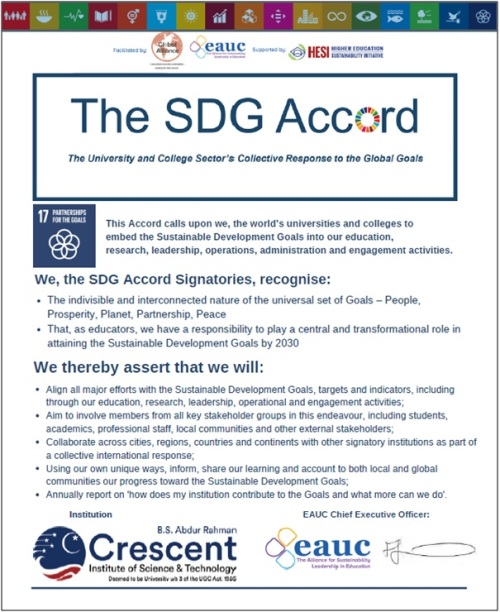
Figure XVII (2.3) – 7 : SDG Accord Certificate
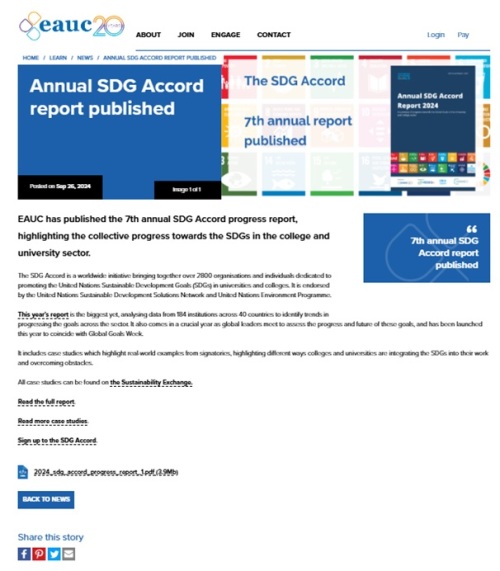
Figure XVII (2.3) – 8 : Annual SDG Accord Report Published
SDG ACCORD REPORT 2024
Report Link : https://crescent.education/wp-content/uploads/2024/11/SDG-ACCORD-REPORT-2024.pdf
Website Link : https://www.eauc.org.uk/annual_sdg_accord_report_published1
Policy for Partnerships for the Goals
Issue: 04; Revised on 2023
| Policy Created on | July 2009 |
| 1st Revision amended on | IQAC Meeting held on 27th October 2017 |
| 2nd Revision amended on | IQAC Meeting held on 31st March 2021 |
| 3rd Revision amended on | IQAC Meeting held on 16th June 2023 |
17.1. OBJECTIVE
The primary objective of this policy is to establish and strengthen partnerships among universities, government bodies, NGOs, and the private sector to promote sustainable development through collaborative efforts, knowledge sharing, and resource mobilisation.
17.2 STATEMENT OF POLICY
The following metrics and indicators will guide the implementation of this policy.
- Research into Partnerships for the Goals: Increase the proportion of academic publications co-authored with low or lower-middle-income countries to foster global collaboration.
- Relationships to Support the Goals: Develop mechanisms to gather data on SDG progress and promote best practices through cross-sectoral dialogue.
- Publication of SDG Reports: Institutions must commit to publishing data on their performance against each of the 17 SDGs, ensuring transparency and accountability.
- Education for SDGs: Ensure a commitment to meaningful education around the SDGs across all university programs relevant to all students.
- Collaboration for SDG Best Practices: Engage in international collaboration to review and develop best practices for tackling the SDGs.
17.3 RESPONSIBILITIES
- Establish Collaborative Frameworks:
- Create Memoranda of Understanding (MoUs) with local and international organizations, NGOs, and government agencies to formalise partnerships.
- Engage in joint research initiatives that align with SDGs
- Enhance Sustainability Literacy:
- Integrate sustainability concepts into the curriculum across all disciplines, ensuring that students acquire the necessary knowledge, skills, and values to contribute to sustainable development.
- Implement workshops and training sessions for faculty and students to enhance understanding of the SDGs and their interconnections.
- Promote Cross-Sectoral Dialogue:
- Organize annual conferences and seminars that bring together stakeholders from academia, industry, and government to discuss progress, challenges, and innovative solutions related to the SDGs.
- Facilitate platforms for knowledge exchange, such as webinars and collaborative projects, to share best practices and successful case studies.
- Monitor and Evaluate Partnerships:
- Develop a robust monitoring and evaluation framework to assess the effectiveness of partnerships and their contributions to achieving the SDGs.
- Utilize data collected from partnerships to inform policy decisions and improve collaborative efforts.
17.4 IMPLEMENTATION
- Short-term (1-2 years): Establish partnerships, integrate sustainability literacy into the curriculum, and initiate cross-sectoral dialogues.
- Medium-term (3-5 years): Expand collaborative research projects, publish annual SDG reports, and evaluate the impact of partnerships.
- Long-term (5+ years): Foster a culture of sustainability within the institution and the community, ensuring ongoing commitment to the SDGs.
17.5 DISSEMINATION OF POLICY
. A. Signage and Visual Communication
- Campus Signage:
- Display clear and informative signage throughout the campus highlighting key aspects of the Partnerships for the Goals policy, focusing on sustainability practices.
- Utilize engaging visuals and infographics that effectively capture attention and communicate important messages.
B. Awareness Programs
- Regular Workshops and Seminars:
- Conduct awareness programs at regular intervals, including workshops, seminars, and training sessions to educate the campus community about the importance of partnerships for sustainability.
- Use interactive formats to promote engagement, encourage dialogue, and facilitate knowledge sharing among participants.
- Student and Faculty Involvement:
- Involve students and faculty in planning and executing awareness programs, fostering a sense of ownership and responsibility towards the policy’s implementation.
- Encourage student-led initiatives that promote collaboration and sustainability practices across campus.
C. Digital Communication
- Website Updates:
- Post the Partnerships for the Goals policy on the Institute’s official website, ensuring easy access for all stakeholders.
- Regularly update the webpage with new information regarding events, initiatives, and progress related to the policy.
- Social Media Engagement:
- Utilize social media platforms to raise awareness about the policy, share success stories, and promote upcoming events related to partnerships and sustainability.
- Create engaging content, including videos, infographics, and testimonials, to reach a broader audience and enhance visibility.
D . Key Performance Indicators (KPIs)
- Track the effectiveness of dissemination strategies through metrics.
17.6 ENFORCEMENT OF POLICY
a) The Dean of Schools and Head of the Departments monitor compliance and address breaches.
b) Awareness of the policy among students, staff, and visitors is essential.
c) Breaches may lead to disciplinary action per the Institute’s code of conduct.
REGISTRAR


